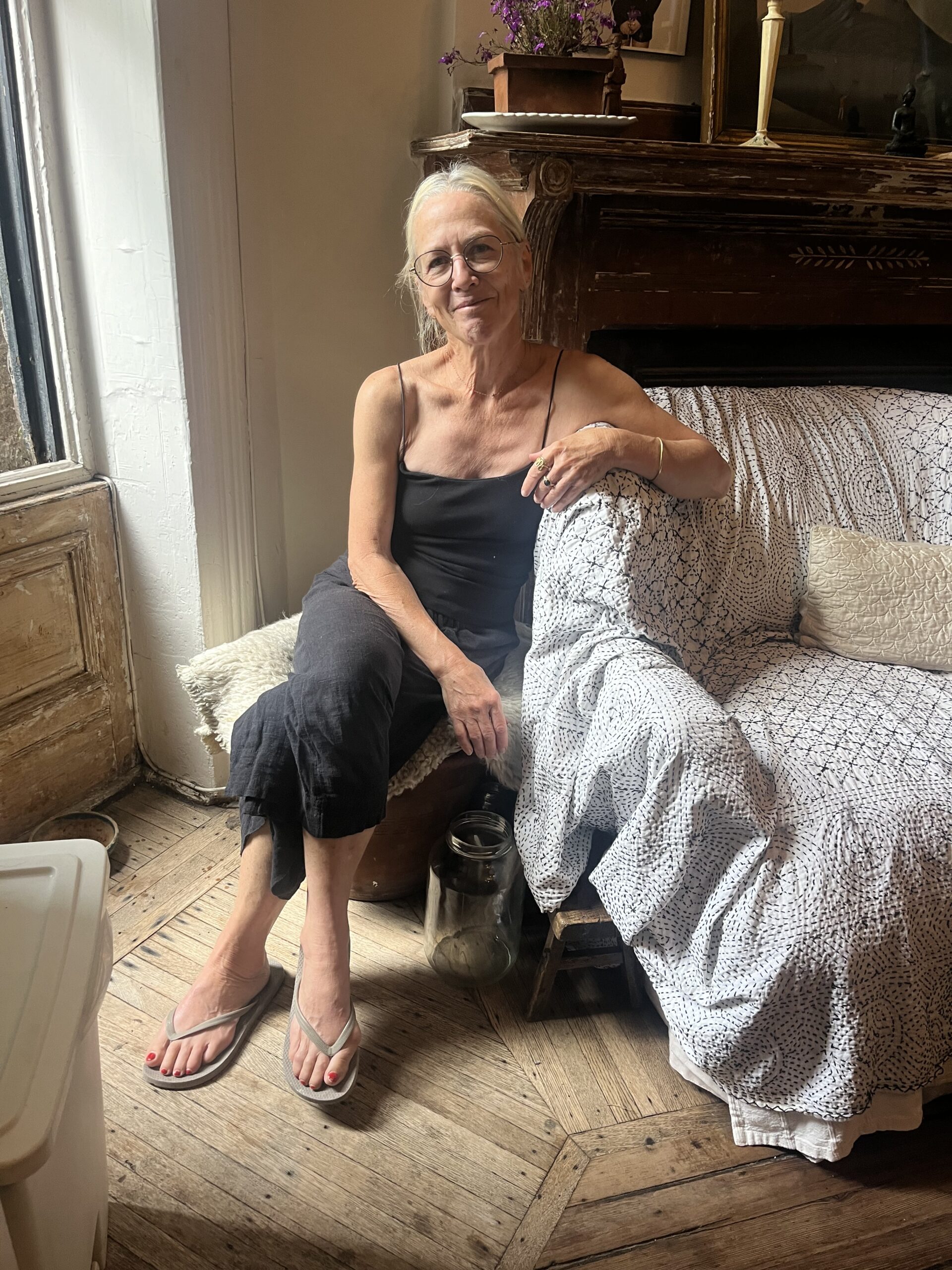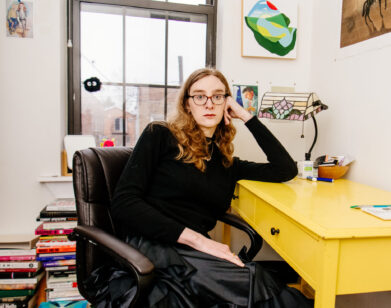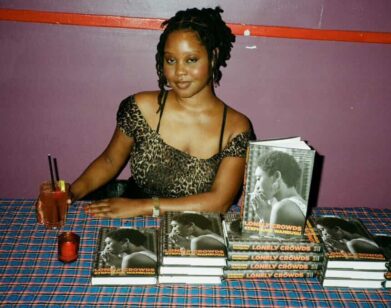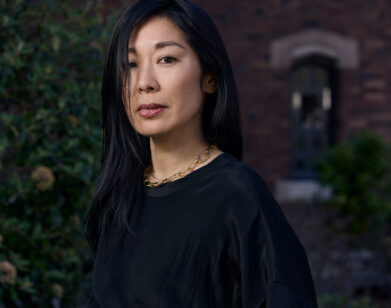LIT
In the Novels of Susan Minot, Women Get to Be Delusional Too
In Susan Minot’s latest novel, Don’t Be a Stranger, a woman of a certain age—a mother—is having an affair with a younger man. Many of the protagonist’s friends find her feverish devotion to a man who won’t commit inadvisable. But one of them understands the syrupy allure of an ill-fated tryst, likening it to “licking honey from the razor blade.” This story is dripping in sweet intoxication; I recommend drinking it all in one sitting. Relayed in Minot’s characteristic knife-cut prose, the romance unfurls alongside the protagonists’ attempts to write, dinner parties (which she admits are “not especially conducive to sincerity” in one of the novel’s many witty asides), and elementary school pick-ups: sublimity stolen in slivers from the quotidian. Minot’s oeuvre is rife with smart women falling for the wrong men, but these are love stories, not morality tales: the point being that the right man might be a myth (or worse, boring), and these women want intensity, experience, a stiff drink sipped from a glass with a crack in it. I recently visited Minot at her West Village apartment to discuss obsession, maternity, total cads, and the importance of doing stupid things.
———
EMMELINE CLEIN: This novel, like all of your work, plays with time, tensing it in really interesting ways, compressing and stretching timelines according to the emotional weight the moment might have for a character. Your characters will often admit that they’ve miscast things to the reader about how time is passing, like when Ivy reveals that she’s spent a lot more time thinking about this man than she actually has with him. So I’m curious how you wanted time to work in this book, and whether it felt like a departure from or an evolution of your other work.
SUSAN MINOT: Well, there’s a very good [Vladimir] Nabokov quote when he was asked a question about a book. He said, “I confess I do not believe in time.” So we treat time as if it’s an actual thing, but it’s so fluid and subjective. I don’t set out to sort of follow my obsessions, but it’s definitely one of my themes. And the biggest aspect of that has to do with experiential time and memory, of course.
CLEIN: The way the memories function is so epiphanic, like in the moment when she’s cutting the broccoli and flashes back to the guy named Boyce in New Orleans.
MINOT: Ivy is very much in her head, right? So the way time works in our head is, all bets are off.
CLEIN: Completely.
MINOT: We return to things that we experienced that maybe we’re not deciding to return to at all. It’s very random. She thinks, “Oh, is this going to be a memory? Wait, I want to make sure this is a memory.” We have our experiences in the sort of time as days go by, but we can live with those things for years or months, over and over again, and sometimes experience it the exact same way. This is all to do with us. This has nothing to do with what’s going on outside. It’s all in our control.
CLEIN: I really loved also the way she’s constantly trying to convince herself that the memory is going to be enough, the same way we all do. She’s reading the Edith Wharton journal and she’s like, “One afternoon of love is enough for the rest of my life.” And then you keep reading the journal and just a few pages later you notice that Edith Wharton might have come to the conclusion that one afternoon isn’t going to be quite enough to tide me over for the rest of my life.
MINOT: There’s a great Amy Hempel short story, which is one sentence long, and it’s called “Memoir.” And it says, “Just once in my life, when have I ever wanted something just once in my life?”
CLEIN: I wish I could want something just once.
MINOT: I know.
CLEIN: I feel like romance and eroticism exist outside the bounds of any sort of traditional monogamous units in this book and in a lot of your books. Here, we’ve got an age gap, an explicitly non-monogamous arrangement, and a protagonist who’s unsure whether her impulse to value the intensity of experience over the endurance of a relationship is good for her.
MINOT: You’re so good at summing it up. But I don’t think Ivy’s even asking, “Is it good for me?” She’s asking, “Is it good? Is this a good thing to do?”
CLEIN: Like, what’s the moral valence of this?
MINOT: People would say, “Oh no, that’s not good because it’s not healthy,” or “that’s not good because there isn’t a future.” Whereas if a person kind of follows her inclination, this instinct that’s leading her somewhere, maybe that’s how we can live our lives. One of the reasons I wanted to write this character is because, oftentimes in books, characters are trying to be practical or logical, and I just think it’s flat. It doesn’t take into account the complexity of all our inclinations. Sometimes, it’s instructive to do something stupid.
CLEIN: Completely. Sex is big in this book, and so is writing. They’re both activities in which she’s able to completely lose herself and also access a part of herself that she can’t in other forms of existing in the world.
MINOT: Very well said.
CLEIN: Could you talk about the relationship between sex and writing for her, and perhaps for you?
MINOT: Well, one you can do on your own and one requires another person.
CLEIN: [Laughs] That is so true.
MINOT: And that requiring another person can get complicated. It means there’s another whole universe that you need to contend with, whereas writing or creating something is creating your own universe. Ivy is aware that writing is a substantial and satisfying thing to do. But then you look up and it’s like, “Wait, I’m here in three dimensions and there’s a world out there and I’m actually interested in being in it.” That tension is always there for an artist, and I wanted to explore that.
CLEIN: I also wanted to ask you about what it’s been like writing protagonists as they age. You’ve often written about women looking back on their life, so I was curious how that expression of despair that your characters tend to share changes as these characters age.
MINOT: I mean, there’s a lot of adolescence in Ivy, I would say. I can remember what it’s like to be 10 years old, and I may not completely operate that way, but sometimes that’s actually a fresher way to look at things. There’s a lot of the sort of bullshit detector in an adolescent that I like. We think of people as aging and then suddenly they’re smarter about this, or they’re not so susceptible to that, so it’s interesting to see what this character at this age becomes more concerned with. Ivy is constantly taking her own temperature. Like, “Wait, I used to feel like that.” Or, “I’m not waiting for him to make the first move; I can make the first move.”
CLEIN: Speaking of talking to 10-year-olds, there is a child in this book as well, Nicky, who’s often speaking in what feel like proverbs. As someone who doesn’t interact with children that much, are they actually just constantly dispensing wisdom? What’s going on?
MINOT: Not necessarily, no. But they’re usually much more straightforward. They don’t have an agenda except like, getting ice cream later or something, right?
CLEIN: Totally.
MINOT: They want to make sure that they’re paid attention to. They learn a kind of manipulation that just has to do with, “Can I stay up later and watch the movie?” I think Nicky speaks to Ivy in this way because she speaks to him that way. She doesn’t talk down to him as a child, and children will often see the weak spots in their parents. But often, they don’t even know quite what they’re saying.
CLEIN: There are many moments in this book where a scene of Ivy mothering her child is immediately juxtaposed with a very sexy sex scene. So much writing about motherhood for women writers often requires you to walk this respectability tightrope, so I wanted to hear about that decision.
MINOT: Big time. The hope I had for this book was to write about a sort of obsessive love affair of a woman who had more years on her, instead of saying “old” as if it’s this awful thing. An older person still has the ability to be foolish and obsessive and all of that, to me, seems very real. But usually, an obsessive love affair does not inhabit the same book as a book about motherhood. But there’s definitely been a breakthrough in that regard, almost to the point of it becoming a cliché. “Oh, now you’re allowed to write about the tedium of motherhood.” So I didn’t want to beat that drum too much. I am a mother, but I don’t feel fulfillment was ever an aspect of motherhood for me.
CLEIN: What do you mean by that?
MINOT: It’s a relationship you have. It’s not like it fills you up. It’s like it expands you. It takes you to a place and a kind of behavior that it’s not like any other relationship because the other person isn’t choosing this relationship. They just get plopped with you. You have to deal with them. You can’t leave it if you want to. There’s so many different criteria that it’s the opposite of fulfilling. It’s expansive.
CLEIN: You also depict the way the relationship between a mother and a child exists amid a web of other relations. Ivy makes a really interesting comment about how it’s so bizarre to be a parent because the goal of a relationship with a child is that they should want to leave, and they’re eventually going to.
MINOT: You’re training to be broken up with.
CLEIN: I think the way you put the two relationships alongside each other throws into stark relief many of the ways we try to force all types of relationships into very constrictive bounds.
MINOT: That’s right. Because they’re so complicated, society has come up with these versions. For some people, it suits them. They wake up in the morning like, “This all makes sense to me. I feel like I belong here. But mostly to me, I feel like a stranger in a strange world, and Ivy’s like that too. She’s like, “I appreciate these things, but it’s just baffling to me this construction of the way things are supposed to be.” But what’s not baffling is when you’re in a man’s arms and you feel like you’re flying through the Milky Way.
CLEIN: Well, speaking of Ivy being in a man’s arms––at the end of the book, she’s sort of reckoning with how much space in her mind that desire has taken up over the course of her life. And that final chapter of the book is set in these series of rooms that are denoted by color, including a therapist’s office, a yoga studio, and a series of lecture halls and movie theaters. I was wondering why you chose to close the story in this series of rooms and how you came to organize it by color.
MINOT: Well, the book was originally going to be a slim little novel about this obsessive love affair that a single mother has. It could have ended there, but I thought about how, in so many movies particularly but often in books, you finish that sort of story, and it’s like, she tosses aside her keys, or she turns left on the street instead of right, or she takes up swimming, or she decides to go climb a mountain somewhere or something. That works dramatically because we understand what it means. There are many different hand-holds that a person often needs. So I was thinking about how this is very much of an urban novel. Everything takes place in rooms, really. So, I started to think of the different rooms, and then I thought, “Oh, there can be different colors.” Instead of stamping it as the shrinks office, it’s the brown room, and the pink room is the yoga studio where your physicality is kind of releasing or returning to yourself in some way. And the red rooms, of course, are the theaters where you’re watching other stories, and they probably lift you up more than anything. So then I sort of hooked into that idea.
CLEIN: So after I finished this fabulous novel, I did go back and reread much of your other work.
MINOT: You are a maniac.
CLEIN: No, it’s so fun. I love to be in your head. I listened to an interview you did some decades ago.
MINOT: What ever did I say?
CLEIN: Well, you were talking about how, in response to Evening, people would say to you, “How can this woman be harboring an obsession decades later over somebody that’s such a total cad?” You were being hilarious in the interview like, “How could you not ruin your life and waste your time being obsessed with a total idiot loser?” And in your books, ingenious women are often throwing their lives away for idiot losers, and I think you’re very good at depicting the reality that you can’t choose who you fall for. And what these women are getting out of it is learning new things about themselves and learning about the intensity with which they can experience life. So I guess I wanted to close this out by asking you about the role of the cad in your oeuvre.
MINOT: Mostly, people say it’s a waste because if you’re crying about someone, then that’s bad. But at this stage of life, I’m not really sure that’s true. I think keeping yourself from something or someone because you think, “Oh, this is going to be wrong or painful”—I’m not sure that’s a good directive. Ivy is clear-eyed about the situations but is going to keep going, the way we often convince ourselves to, and I do not think that’s a waste of time. Ivy definitely neglects some friends, and this obsession takes its toll, just as motherhood does. Not everything works out perfectly. But you don’t fall in love with someone because of what they do for you. You fall in love with them because of the way he wears his pants.







